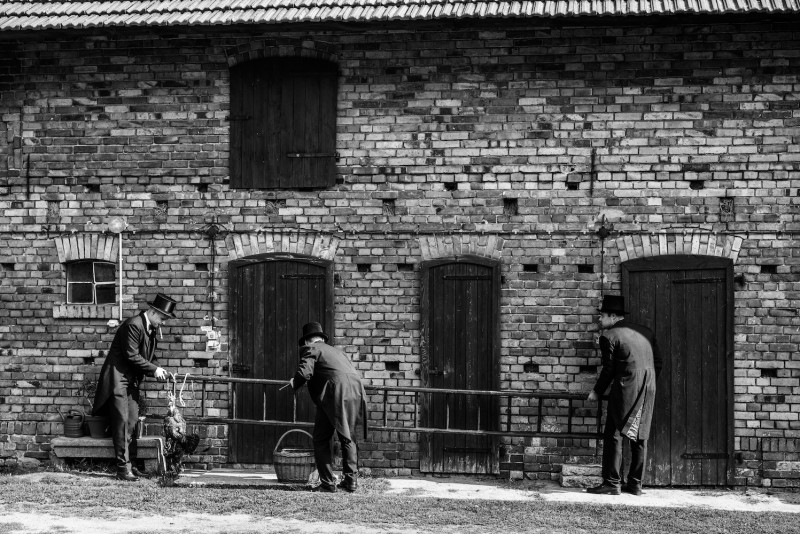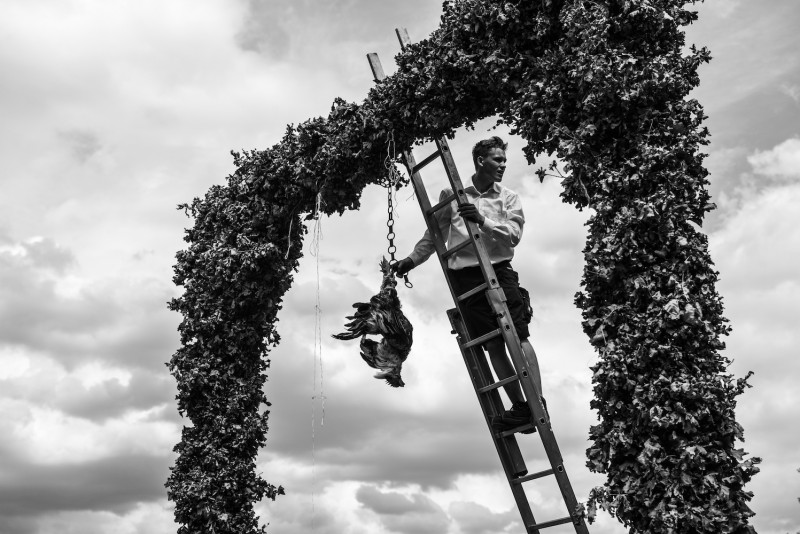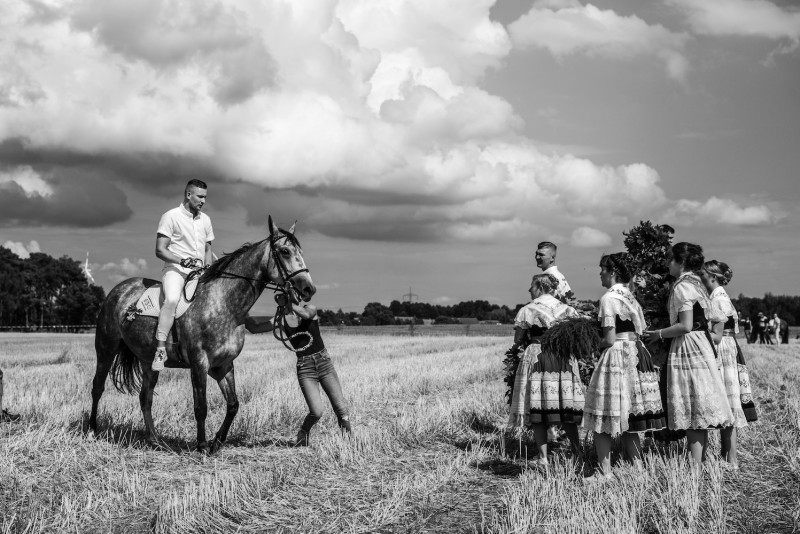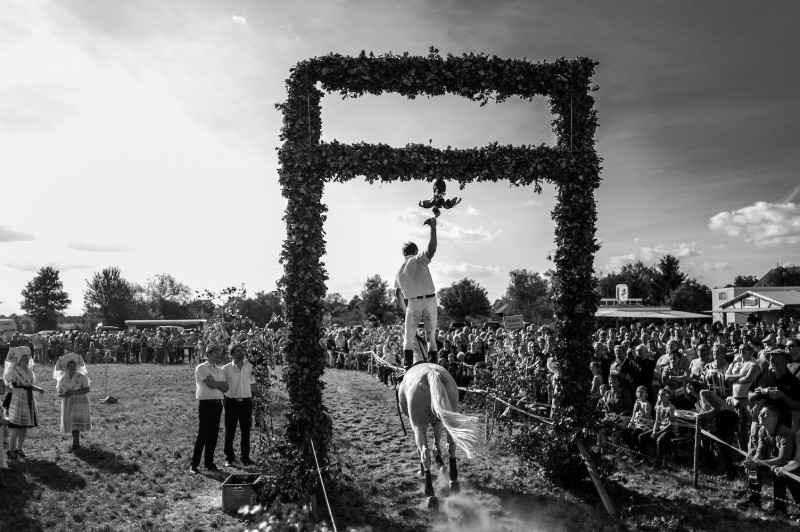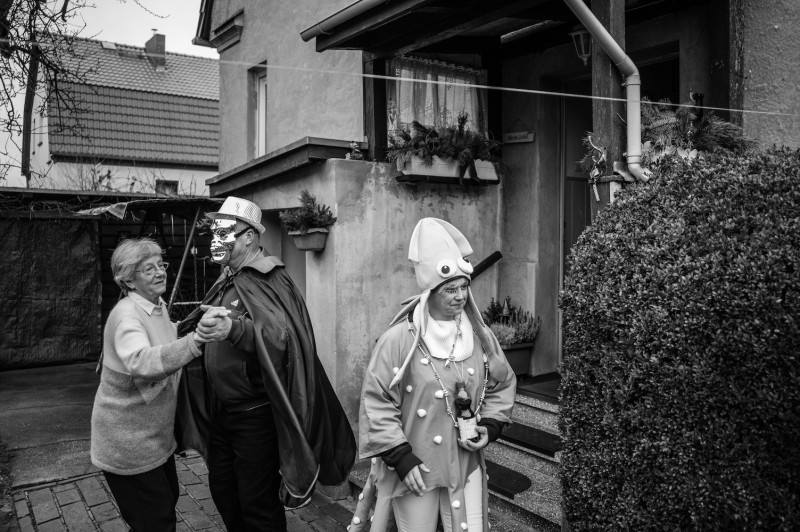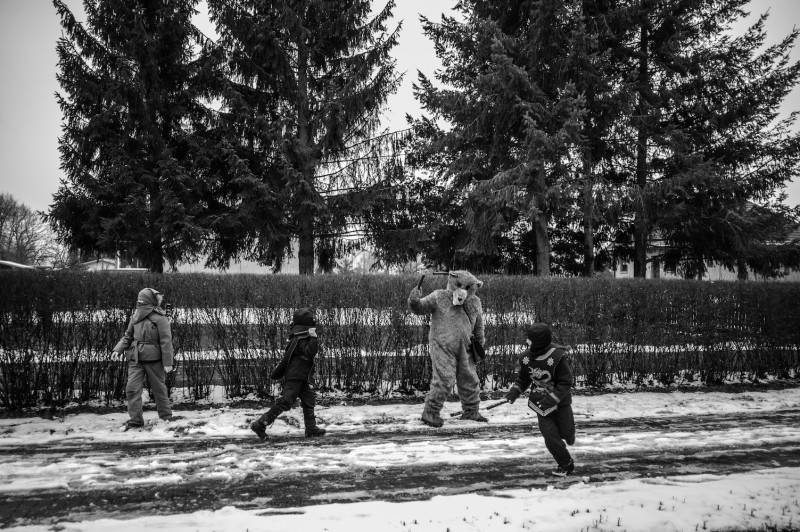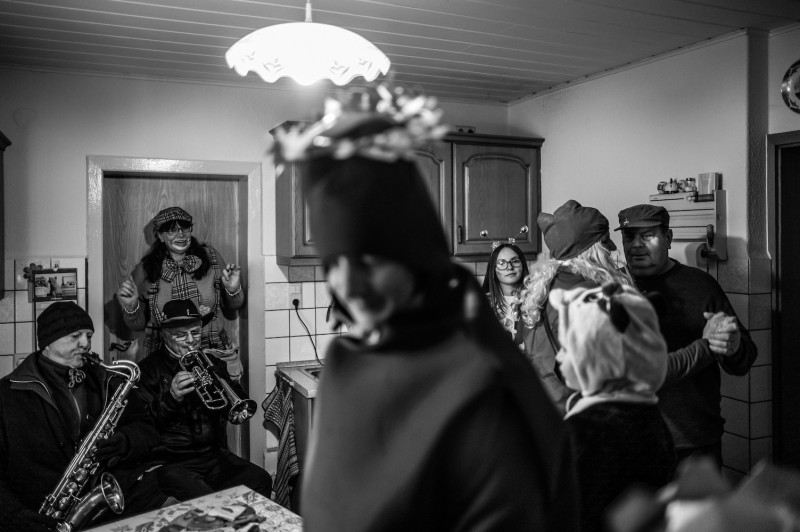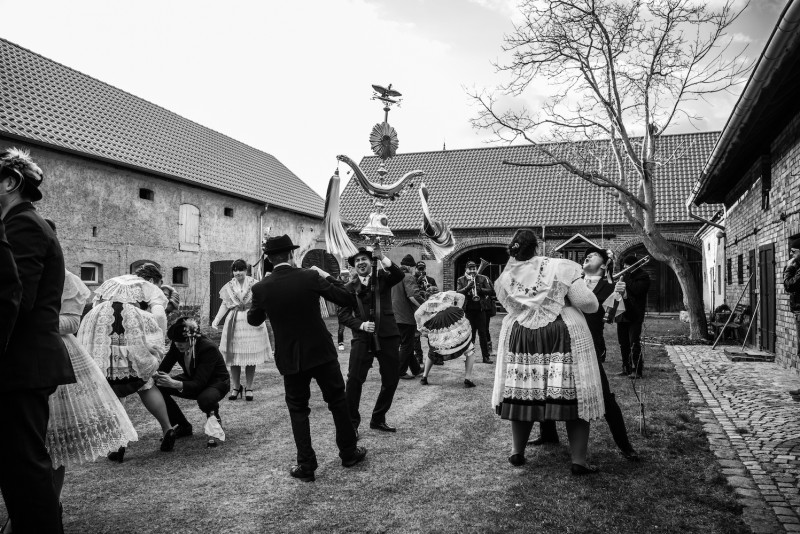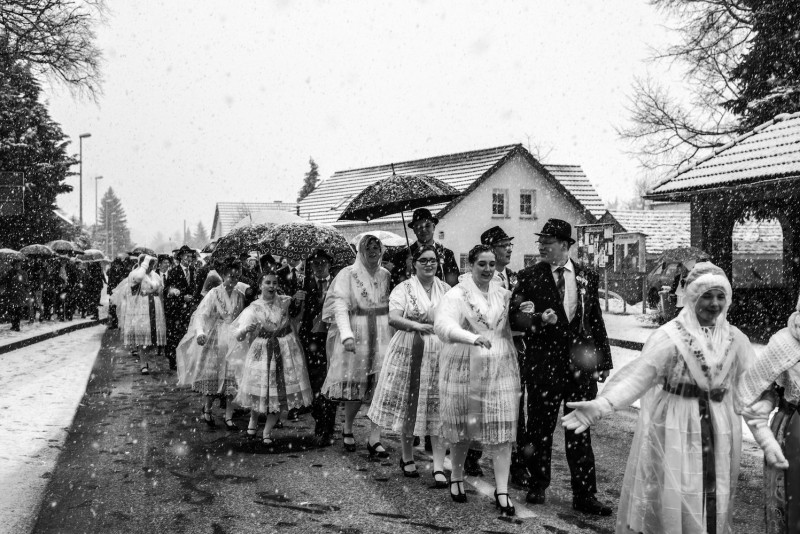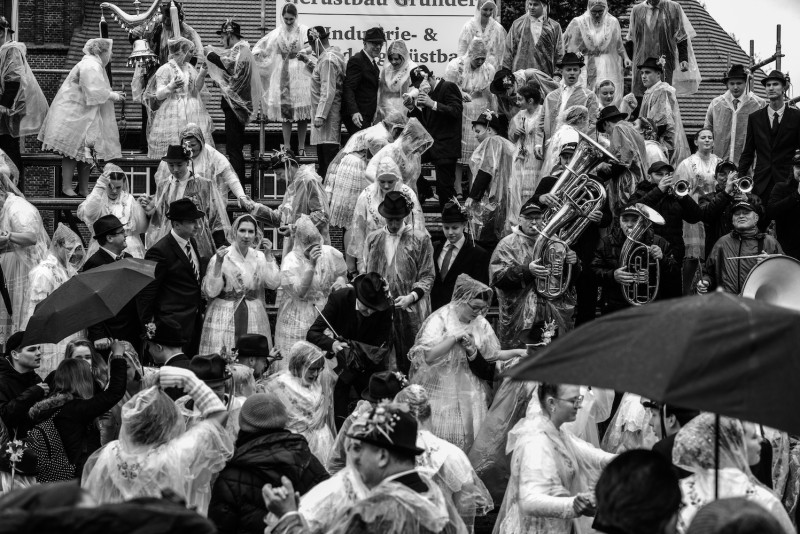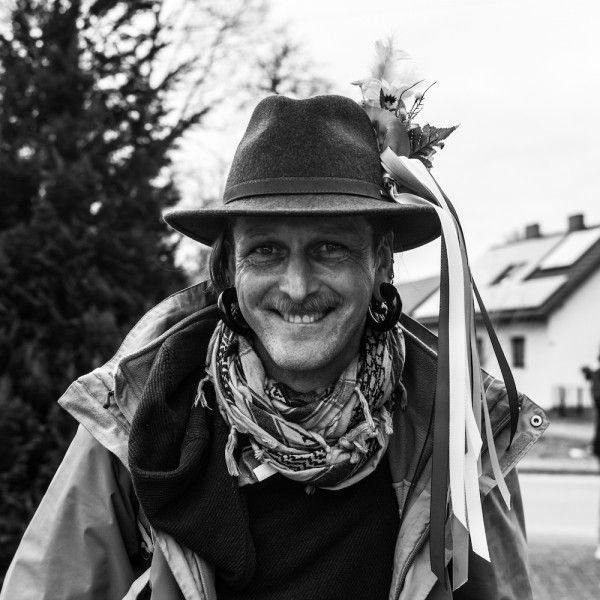With the Sorbs
With the Sorbs
Andreas Batke
February 3, 2021
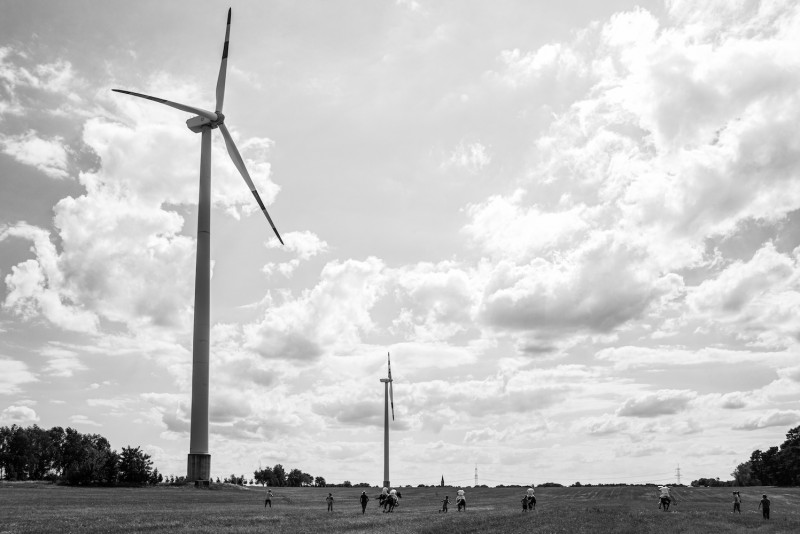
LFI: What motivated you to document Sorb festivities?
Andreas Batke: My grandparents came from Lusatia. As a child, I was always bored when they took me on barge tours on the Spree rivers, and I had little interest in their stories and sentimentality. It was only after they passed away that I became interested in the culture. The Wendish Shrovetide was only in part new to me; as for the harvest festival, I’d never attended it. Already, as I was doing research, I could see that both were very promising, visually...
Sorb culture is in acute danger of disappearing. Does your work refer to certain political demands?
Certainly. After all, the pictures reveal an alternative way of living. They report on the remains of a parallel world that has been disregarded for centuries, especially during the Nazi era. When I visit them today, I can see how small the circle of remaining protagonists living there is, and how much they struggle for funding and factual reporting. A dead cockerel losing its head in a competition is what makes headlines in nearby Berlin. However, Sorb festivities have a powerful, sensual, honest and delightful impact on me. In their customs, I see so much positive faith in the future. I get emotional strength by being there. My pictures should convey that good feeling.
What photographic challenges did you need to master, while working on this project?
During the festivities, there are many things happening at the same time and very quickly. It’s not a car race, but it challenges me, athletically. For Zampern, a Sorb street festival, I was able to train at home, because I’ve run with it since I was a child.
What were the reactions of the people portrayed?
On the whole, the people are very open and appreciate my work. There were some skeptical voices, at first, because I dispensed with colour, even though everything is very colourful. Yet in Burg (Spreewald), I’m called Foto Andi. I feel accepted! (Interview: Danilo Rößger)
All pictures on this page: © Andreas Batke
Equipment: Leica M Monochrom and Leica MP (Typ 240) with Summilux-M 1:1.4/28 ASPH., Summilux-M 1:1.4/35 ASPH., Summicron-M 1:2/28 ASPH., Noctilux-M 1:1.25/75 ASPH. and Apo-Summicron-M 1:2/50 ASPH.
Andreas Batke+-
Andreas Batke was born in 1975, and lives on the edge of Lusatia. In addition to being a health worker, he has been working as a photographer for years -- for the Oder-Spree Museum, among other entities. He photographed animals for a long time, before turning to people. Nowadays, documenting rural life has become the focus of his work. More

